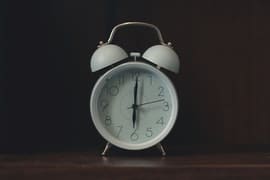Drinking alcohol can cause a variety of unpleasant, muscle-related symptoms.
Article at a Glance:
Facts to keep in mind about alcohol and your muscles include:
Alcoholism lead to a variety of muscle problems including pain, poor performance, and slower healing
Doctors think that alcohol harms muscles through a few different mechanisms. However, studies have not been able to identify which mechanisms impact muscles the most.
Drinking alcohol can also harm your physical fitness, even if you only drink casually
Alcohol’s Effects on Muscles
An alcoholic, or someone after a night of heavy drinking, may notice muscle problems or discomfort after drinking. That’s because alcohol use can cause harm to the muscles.
Some muscle symptoms you may notice after drinking include:
- Pain or cramps
- Weakness
- Poor athletic performance
- Less endurance
- Impaired recovery
Why Alcohol Affects Muscle Development & Recovery
Medical professionals understand that alcohol may harm muscles. However, studies have not yet shown clear reasons why alcohol damages muscles, at least in humans. Presently, doctors and researchers suspect that some ways in which drinking alcohol impacts muscles include:
Alcohol Disrupts Calcium Absorption
Drinking alcohol interrupts the flow of calcium in muscle cells. Calcium is a substance that is responsible for helping muscles contract. Therefore, doctors think that by harming how calcium works in muscle cells, drinking may reduce your strength.
Alcohol-damaged Muscles Release Creatine Kinase (CK)
This chemical, also known as CK, is released from muscle cells after injury. Most CK in the body lives inside muscle cells, where it helps to make energy for muscles to function. Therefore, if your doctor orders a blood test and it shows that your CK levels are high, this might mean that there is muscle damage. Alcohol harms muscles, and these damaged muscles then release CK.
Alcohol Use Contributes to Muscle Cramps
The main job of your liver is to get rid of harmful substances in your body. Your liver considers alcohol to be a harmful substance and will, therefore, make it a priority to get rid of the alcohol in your bloodstream. This fact means that other substances that the liver tries to get rid of may have to wait longer to leave your body than if you had not been drinking. When you exercise, your body produces a chemical called lactic acid which can cause cramps. Usually, your liver tries to get rid of the lactic acid. However, when you have been drinking, the lactic acid may take longer to leave your body because your liver is trying to get rid of the alcohol instead. The lactic acid can then linger longer than usual and cause extra muscle pain and cramps.
Alcohol Can Contribute to Muscle Breakdown
Unfortunately, after you drink alcohol, the chemicals in your body making it easier for your body to break down muscle and harder for it to build muscle.
Related Topic: What happens when you drink alcohol every day
Alcoholism and Physical Fitness
In addition to looking at why drinking can harm muscles, it’s also important to consider how alcoholism affects overall fitness levels. Even if you are only a casual drinker, drinking can harm your ability to be physically fit.
Heavy alcohol use or alcoholism can affect your fitness in a few ways, including by impacting your body’s:
- Water levels: Alcohol is a diuretic, which means that when you drink you can easily get dehydrated. Because exercise can also dehydrate you, the combination may reduce your performance level. You may also have symptoms of dehydration, like dry mouth, fast heartbeat or feeling dizzy.
- Performance level: Alcohol impacts how your body creates energy. When your body breaks down alcohol, your liver is focused on trying to remove the alcohol from your body. Therefore, your liver is not able to produce as much sugar to keep you energized. Therefore, your blood sugar levels may stay low, which means you may not be able to exercise at the same level you normally would.
- Balance: Alcohol harms your balance, coordination and reaction time. It can take time for your function to return to normal after you have been drinking alcohol.
- Sleep: Drinking can harm your sleep patterns. In turn, the lack of sufficient sleep disturbs the hormones that are necessary for muscle growth.
- Weight: Depending on the form, alcohol is usually high in calories. Some drinks are also high in sugar. Consuming excessive calories and sugars in the form of alcoholic drinks can cause weight gain, which can impede your athletic performance.
- Injury: Drinking alcohol can temporarily cause your blood vessels to expand, which increases blood flow. Therefore, if you injure yourself and start drinking, your healing may be slowed because of increased swelling and bleeding from your alcohol use.
Related Topic: Does alcohol raise blood sugar
How to Treat Muscle Problems From Drinking
The only proven remedy for muscle problems from drinking is to reduce or stop alcohol use. If you have minor muscle problems from a single bout of heavy drinking, your muscles may begin to improve within a few days. However, chronic drinking or alcoholism can damage the muscles to the point that it can take months to fix the damage.
Need help to stop drinking alcohol? If you are struggling with alcohol use disorder or alcohol addiction, you’re not alone, and your recovery is possible. Our team at The Recovery Village is here to help you every step of the way, whether you decide to pursue alcohol rehab with us or not. Contact us today to learn more about how we can help you on your journey to a healthier you.
Articles Related to Alcoholism

Alcohol detox isn’t easy and not everyone can do it on their own. That is why alcohol detox and alcohol withdrawal treatment is administered by medical professionals.

Alcoholism takes many forms, and the stereotype doesn’t always hold true. So when do a few drinks with friends become a full-blown alcohol addiction? How do you know if you are an alcoholic?

While cirrhosis scars from excessive drinking are irreversible, quitting alcohol and leading a healthier lifestyle can help your liver heal from alcohol-related liver disease.

When detoxing, hydration is key. However, certain food groups also have benefits when it comes to helping with the discomfort of withdrawal symptoms and detoxification.

Detox from alcohol can begin within hours. Typically, alcohol withdrawal symptoms happen for heavier drinkers. Alcohol withdrawal can begin within hours of ending a drinking session.

Daily drinking can have serious consequences for a person’s health, both in the short- and long-term. Many of the effects of drinking every day can be reversed through early intervention.


Vella LD, Cameron-Smith D. “Alcohol, Athletic Performance and Recovery.” Nutrients, published in August 2010. Accessed April 29, 2019.
Irish Nutrition and Dietetic Institute. “The Truth About Alcohol and Exercise.” Reviewed in April 2019. Accessed April 29, 2019.
Barr EB, Camera DM, et al. “Alcohol Ingestion Impairs Maximal Post-E[…] Concurrent Training.” PLoS One, published in 2014. Accessed April 29, 2019.
Simon L, Jolley SE, Molina PE. “Alcoholic Myopathy: Pathophysiologic Mec[…]linical Implications.” Alcohol Research Current Reviews, published in 2017. Accessed April 29, 2019.
The Recovery Village aims to improve the quality of life for people struggling with substance use or mental health disorder with fact-based content about the nature of behavioral health conditions, treatment options and their related outcomes. We publish material that is researched, cited, edited and reviewed by licensed medical professionals. The information we provide is not intended to be a substitute for professional medical advice, diagnosis or treatment. It should not be used in place of the advice of your physician or other qualified healthcare providers.